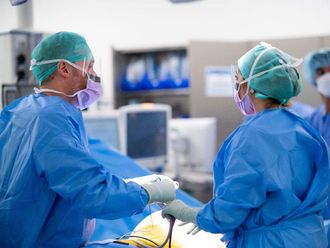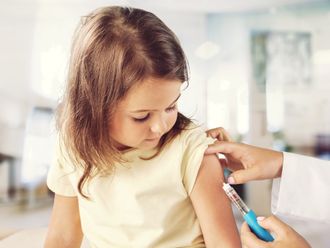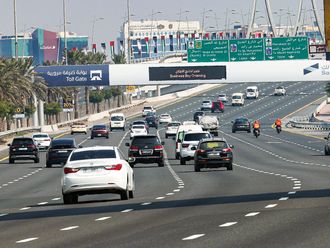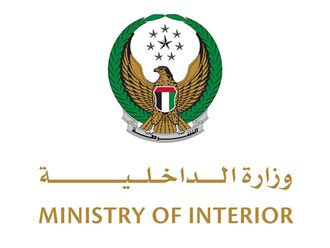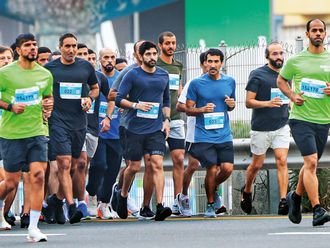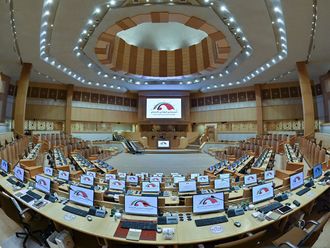Dubai: Officials on Monday announnced detailed health and safety guidelines for over 5,000 Haj pilgrims travelling to Saudi Arabia from the UAE this year.
The UAE Ministry of Health and Prevention launched a health and safety campaign in collaboration with the Health Authority of Abu Dhabi (HAAD) and the Dubai Health Authority (DHA).
Dr Fatima Al Attar, director, International Health Regulations Office at the health ministry, said the pilgrims must get the meningococcal vaccine a minimum 15 days before travel and obtain a valid international vaccination certificate which is a prerequisite for Haj travel.
Also, other vaccinations, such as pneumococcal and influenza, are recommended for those 65 years of age, those suffering from diabetes, cardiovascular or other chronic diseases and those who have undergone organ transplants or have leukaemia where their immune systems are compromised.
HAAD officials said the vaccines will be administered free of charge to all Haj pilgrims in Abu Dhabi while those with Ministry of Health and Prevention health cards will be provided vaccinations free of charge.
In Dubai, DHA officials said some insurances cover these vaccinations while others will have to pay. The mandatory meningococcal vaccine is priced at Dh250.
The health officials have divided their campaign into three distinct stages, with precautions and steps to be taken before the journey, during and after the return of the pilgrims.
Dr Essam Howayyer, head of Accident and Prevention Centre at Al Qasimi Hospital, said that the ministry sent its officials at least two weeks in advance to make preparations for the pilgrims. “We start planning at the end of the last Haj a year before and our operational system for prevention and treatment is put into place then. We are responsible for the health and safety of each and every pilgrim from UAE.
“Two weeks before the pilgrims arrive at the venue, we set up our prevention and action centres, supervise the place of residence for the pilgrims, ensure all precautions are in place, the pilgrims are getting the right nutrition and are available for emergency treatments. In case of requirement for hospitalisation we provide that. We make sure the pilgrim gets the full and appropriate treatment and also follow up on his return to the UAE.”
In addition to Dr Al Attar and Al Howayer, the event was attended by Dr Farida Hosani, manager Communicable Diseases from HAAD, Dr Nahed Jaffar, head of Preventive services centre at DHA and Dr Laila Al Jasimi, head of Immunisation Section, Ministry of Health and Prevention.
Precautions before Haj
• Visit the doctor at least once and review your health status and potential health risks
• Take required medications as prescribed by the doctor, especially for chronic diseases
• Take the mandatory vaccination at least 15 days before travel
• Get the international vaccination certificate from your authorised health centre
• Prepare medical /first aid kit which can include dressings, plasters, antihistamine tablets, analgesics, pain and anti- diaorrhoeal medicines
During Haj
• Take rest when feeling travel sickness, dizziness and nausea.
• Avoid direct exposure to the sunlight, especially at midday hours by using an umbrella as head protection and humidifying the body with water.
• Drink plenty of liquids to remain hydrated especially while moving.
• Patients with chronic diseases such as hypertension and diabetes are advised to take related medicines along with self-examination devices to monitor blood pressure and blood sugar levels.
• Elderly patients with any chronic disease that requires specific attention are advised to travel with a companion who will be experienced in handling a medical emergency related to that chronic illness.
• Make sure to carry medicines related to most common complaints like Paracetamol for headache and body aches, antiseptics for wounds or skin lesions and ointments for burns.
• Upon feeling fatigue or severe stress immediately discontinue any activity and if the feeling persists, then you must visit the nearest health-care centre.
• Never forget your personal hygiene items such as: soap, toothbrush, toothpaste and comb.
After Haj
• Ensure taking enough rest and drinking fluids
• If you develop fever and cough which is severe two weeks within arrival after Haj, seek medical attention
• Cover your mouth and nose with a tissue when coughing or sneezing and wash hands regularly
• Avoid close contact with others to prevent spread of infection


